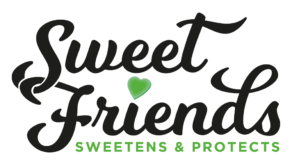
04 May Xylitol in Cancer Patient Care
by Kris Potts, RDH, BS, FAADH
Cancer. It is difficult to think of another word that strikes dread so universally in the soul. Almost everyone has been affected by cancer in some way, at some point in their lives. What about the patients in your practice? Have they also been impacted in some way by the path of this disease?
The dental provider team is in a unique position to make a difference to those affected. Whether the patient is in treatment, a survivor, or a friend or family member of someone who is, we can be a part of a collaborative care team having a positive impact for this ever growing community.
We’ve all seen the obvious effects of cancer treatment: dry mouth, increased decay and mucositis. So let’s tackle those up front.
Prehabilitation. We don’t always know a patient is facing this journey until they are in the midst of it. However, prevention is preferred rather than an oral overhaul when all is said and done. Patient education and communication are critical to success. If an individual knows what to expect, has materials on hand to deal with issues that arise, or can prevent their occurrence altogether, their quality of life is greatly improved. This helps make their trek down this road less frightening.
Dry mouth
Some cancer treatments totally shut down the production of saliva, which may never return to previous levels. These patients need salivary substitutes in their arsenal. Others experience changes in consistency–the level of salivary proteins available and a change in pH. A common misconception is to combat this effect by drinking more water. Water is necessary to hydrate the body, but it can dilute the salivary mucins necessary for oral health and still not alleviate the symptoms. Xylitol stimulates salivary flow, bringing on the protective benefits of saliva and raising the pH of the oral cavity back into the neutral zone in a short period of time (5 min). The Spry line features a Dry Mouth Gel, which tastes great and provides quick, long-lasting relief.
Dental Decay
Increased tooth decay can be due to the decrease or absence of salivary flow, nausea and vomiting, acid reflux, and the consumption of high sugar nutritional supplements. Nutrition is extremely important during treatment and many individuals turn to foods that may not be the best options for oral health. They will choose foods that require little chewing or that negatively affect the teeth due to the altered salivary composition. Using xylitol in meal preparation, alternatives with therapeutic doses of xylitol, or use of a 100% xylitol sweetened product after a meal can counteract those choices.
Mucositis
Not everyone experiences this and each individual’s experience with it is different. Xylitol has been proven to be beneficial in healing wounds and has a soothing, cooling effect on the oral mucosa. There are medications, products, and rinses available, which can lessen the frequency, the severity, and may even prevent occurrence altogether. Many oncologists are not aware of their existence.
There is not one single product on the market today that can solve all the oral issues a cancer patient faces, but we have many that can be carried in our repository to benefit the patient. What works well for one, does not necessarily work well for another. Many existing therapies are unpalatable making compliance a giant obstacle.
Cancer is a significant concern in our society, and as better detection and screening processes become available, the incidence is expected to increase. Dental providers can become an integral part of an oncology care team. We can make this undesirable journey more comfortable. Having natural, quality xylitol products at our disposal makes our impact even larger for cancer patient care.
